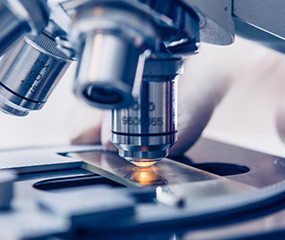
|
|


|

|
|
|
- |
|
|
|
|
Course synopsis |
|
This course aims to familiarize you with the subject matter knowledge for Lower Secondary Science (LSS). Designed as integrated science, teaching LSS can be challenging for specialist teachers who are proficient in one or two sub-disciplines of science. For instance, physics-trained teachers might be less familiar and confident with the biology content in LSS. Similarly, biology-trained teachers might struggle with the deep conceptual ideas in physics. While there are many resources available for teachers to learn new subject matter knowledge, some teachers remain anxious as they find it challenge to navigate, to validate and to determine the truth of the myriad of resources on the internet. As such, in this course, we have curated key conceptual ideas for each topic in LSS to serve as sound and strong foundation for teacher teaching LSS to build their subject matter knowledge. |
|
View More |
Objective |
|
At the end of each topic, participants would be able to:
Learning ModeThe course adopts a fully asynchronous learning mode. Through interactive content and quizzes, you will pace your own learning and choose the most convenient time for you to go through the materials.Different topics are designed differently to model for learners how disciplinary content in science can be presented differently. If you choose a 10-topic package, you havetwo monthsto access the materials. Total duration is estimated to be is 1hr x 10 topics = 10hrs. No refund and no extension of access will be given if you missed the access period. |
Outline |
|
If you are a biology specialist, you may want to level up your disciplinary knowledge for “Electrical Systems”, “Application of forces and transfer of energy”, “Transfer of heat energy and its effects”, “Ray model of light” and “Exploring diversity of matter by its physical properties”. To register for the 5 topics package, click here.
If you are a physics specialist and would like to level up your disciplinary knowledge of biology and chemistry, you may decide to go for a 10-topic package with topics such as “Models of cell- basic unit of life”, “Interactions within ecosystems”, “Human digestive systems”, “Transport systems in living things”, “Human sexual reproductive systems”, “Chemical changes”, “Models of matter – atoms and molecules”, “Model of matter – the particulate nature of matter”, “Exploring diversity of matter by its chemical composition” and “Exploring diversity of matter using separation techniques”. Similarly, if you are a chemistry specialist who decides to familiarize yourself with all the disciplinary content for LSS, you can choose a 15-topic package covering all the topics for Diversity (3 topics), Models (4 topics), Interactions (4 topics), and Systems (4) topics. To register for the 15 topics package, click here. TopicsThe topics will be made available for you to choose in NTULearn (Blackboard) after you are enrolled in the course. Diversity 1. Exploring diversity of matter by its physical properties 2. Exploring diversity of matter by its chemical composition 3. Exploring diversity of matter using separation techniques Models 1. Ray model of light 2. Models of cells – Basic unit of life 3. Model of matter – The particulate nature of matter 4. Model of matter – Atoms and molecules Interactions 1. Application of forces and transfer of energy 2. Transfer of heat energy and its effects 3. Chemical changes 4. Interactions within ecosystems Systems 1. Electrical Systems 2. Human Digestive System 3. Transport Systems in living things 4. Human Sexual Reproductive System |
Course fee |
||||||||||||||||||
*MOE Educators include MOE & Direct Hire Staff from Independent, Specialised Independent and Specialised Schools. **Non-MOE educators refer to those from SSP, SOTA, polytechnics, ITE, LASALLE, NAFA, University of the Arts Singapore, government-affiliated educational institutes, and autonomous universities. |
Who should attend |
|
Educators teaching lower secondary Science.
|